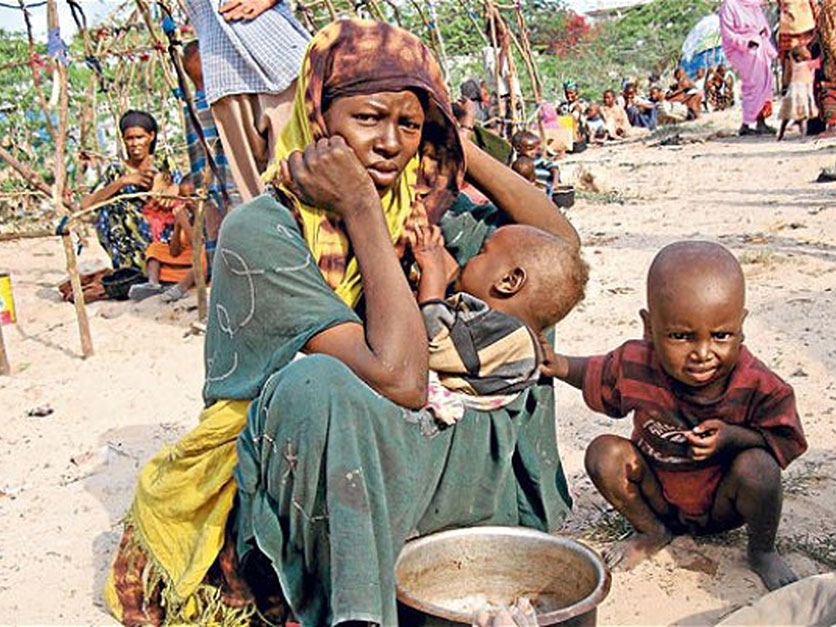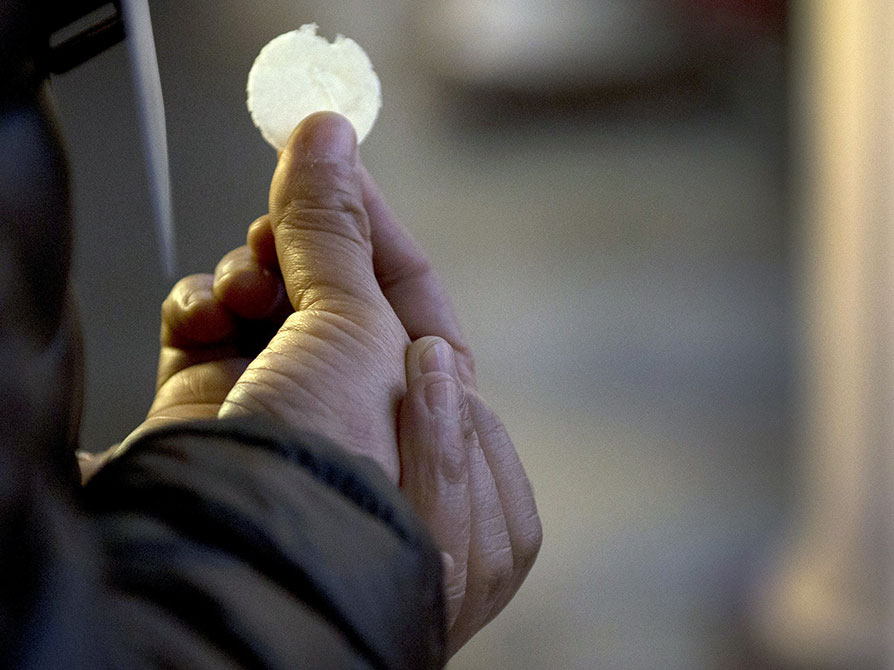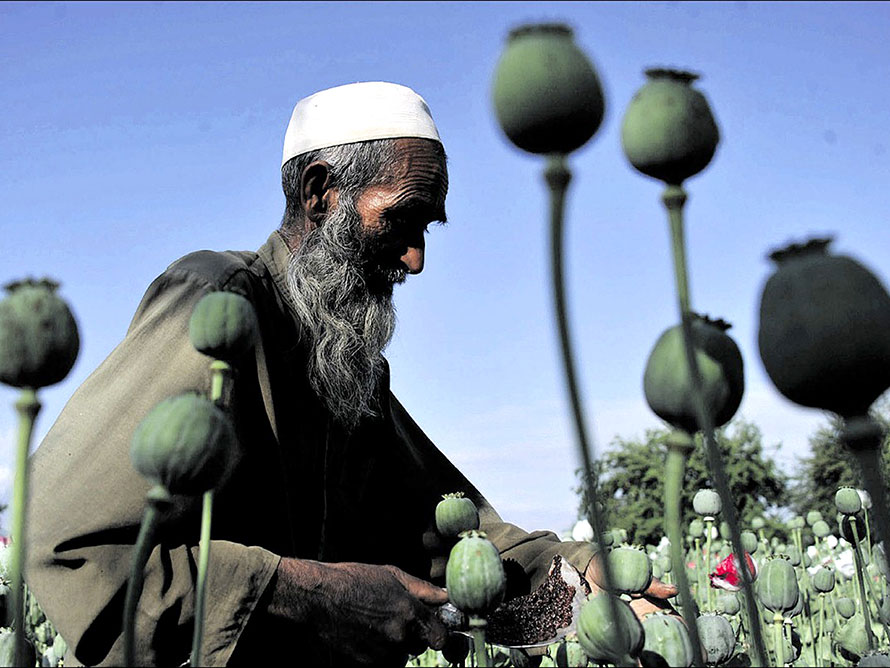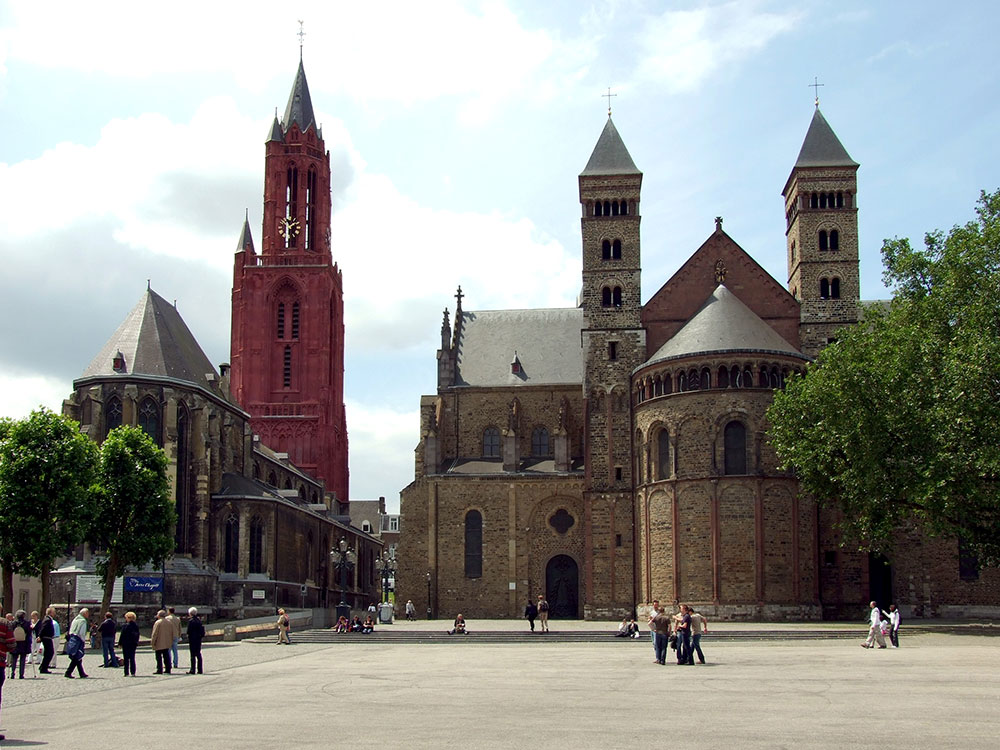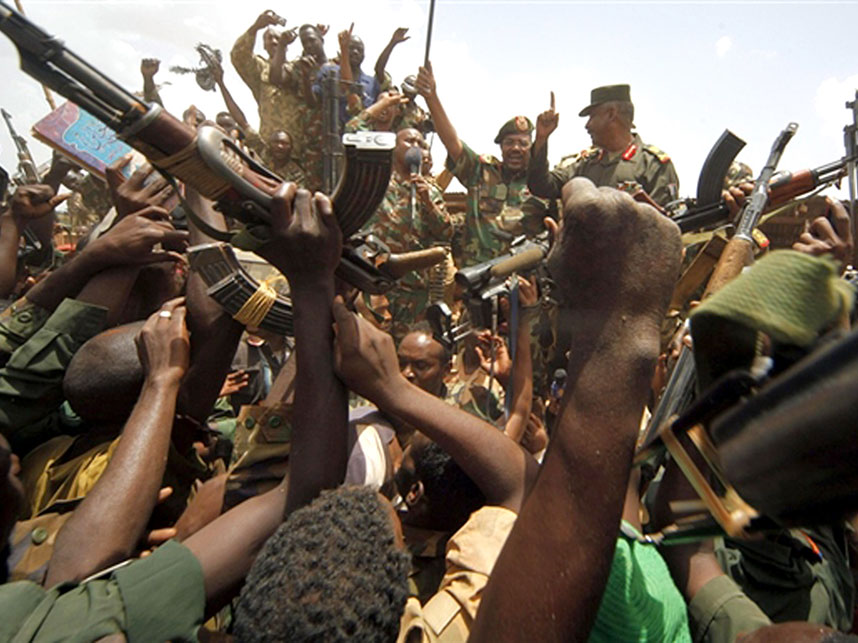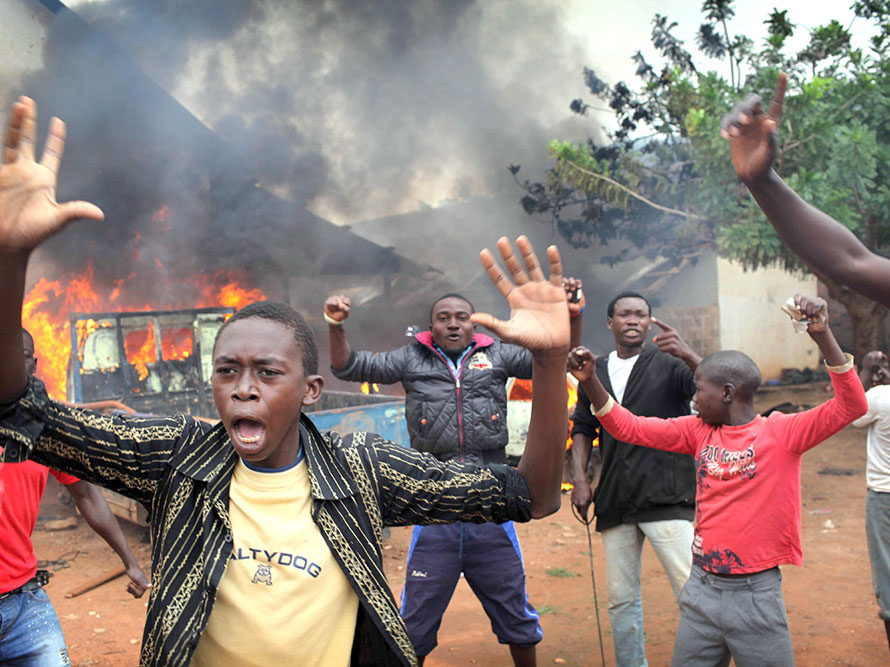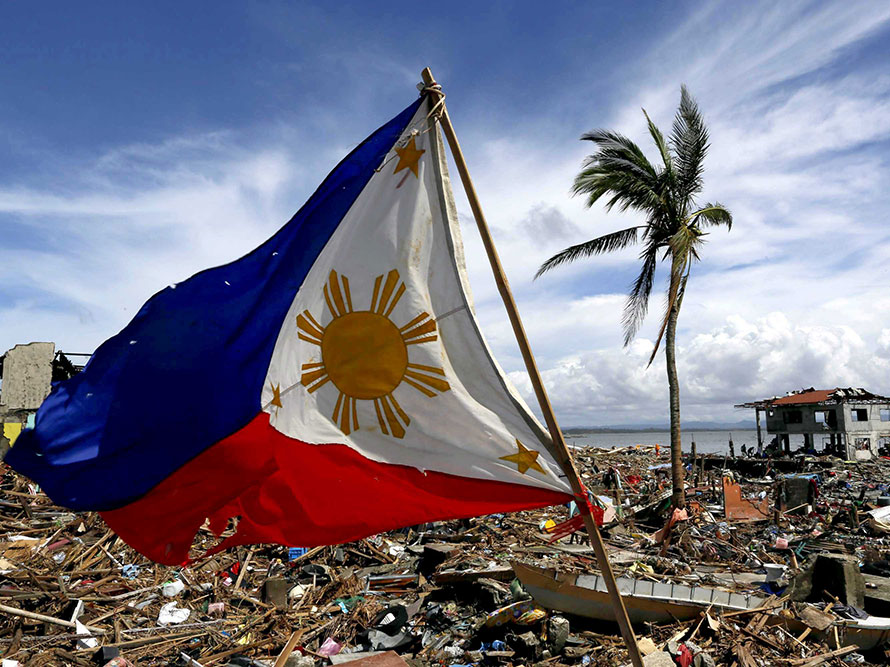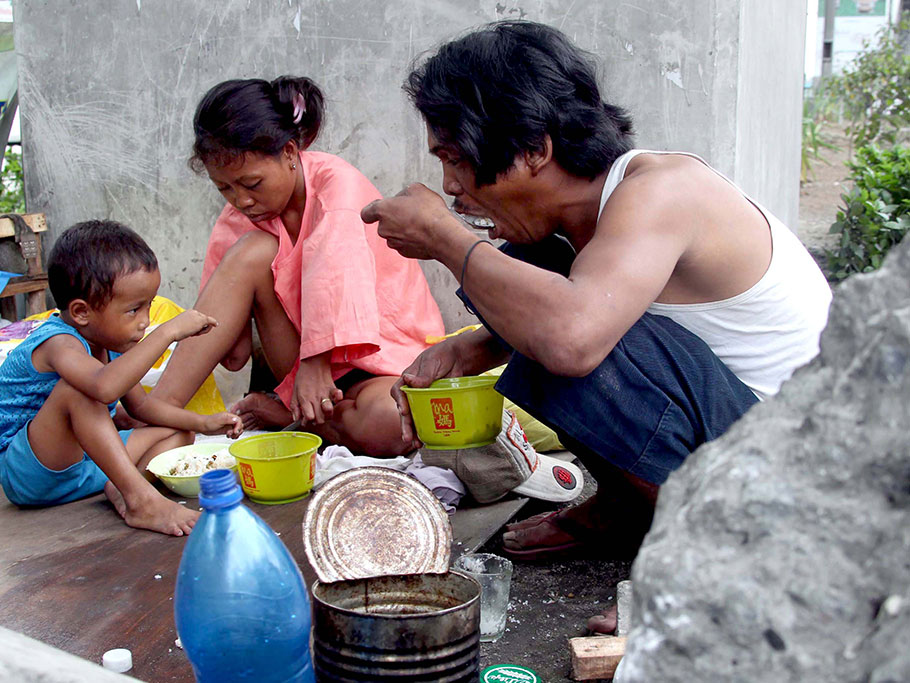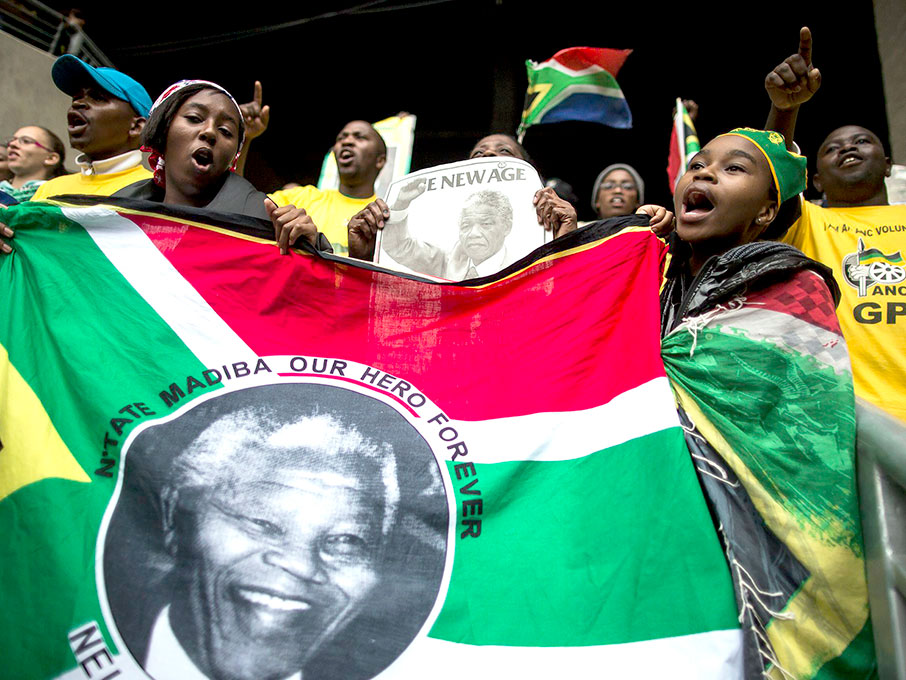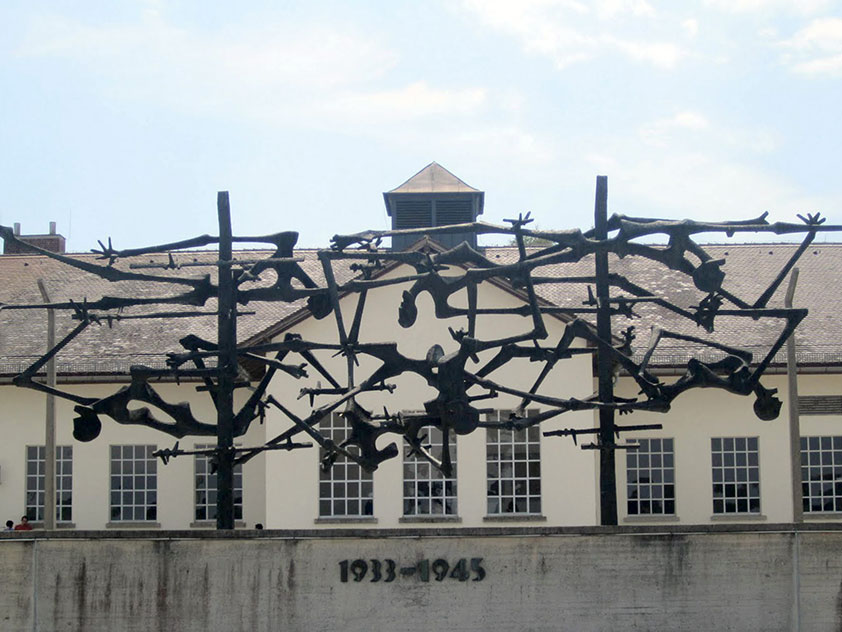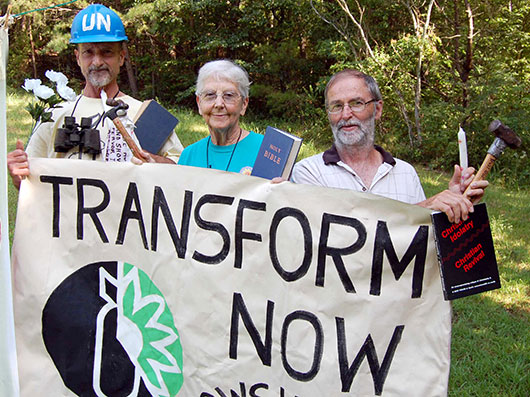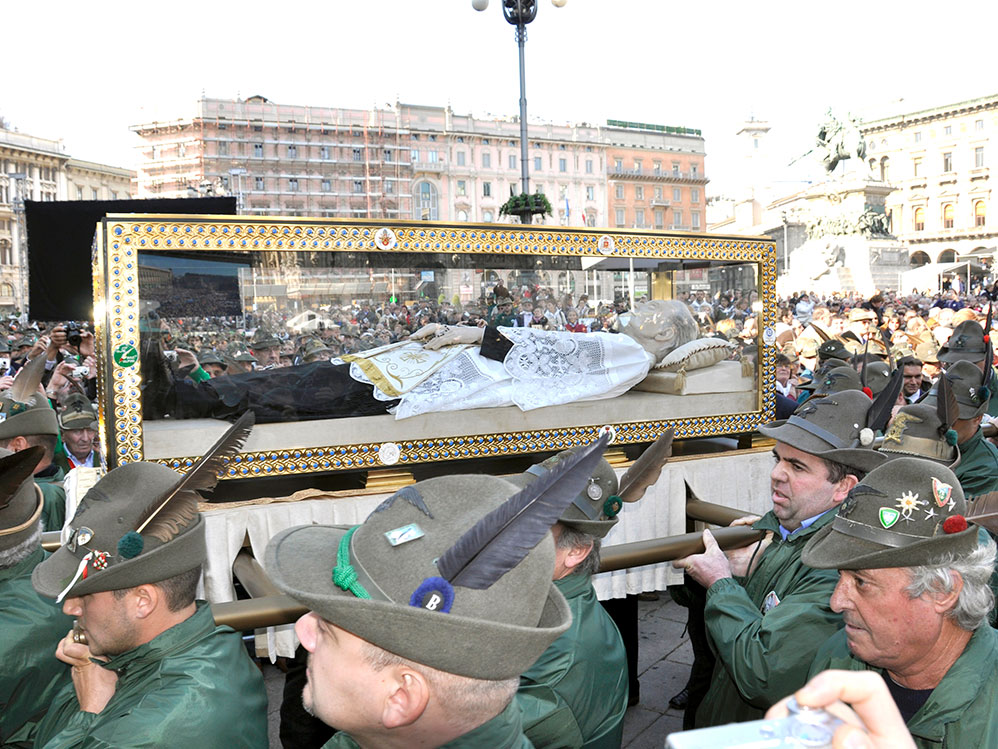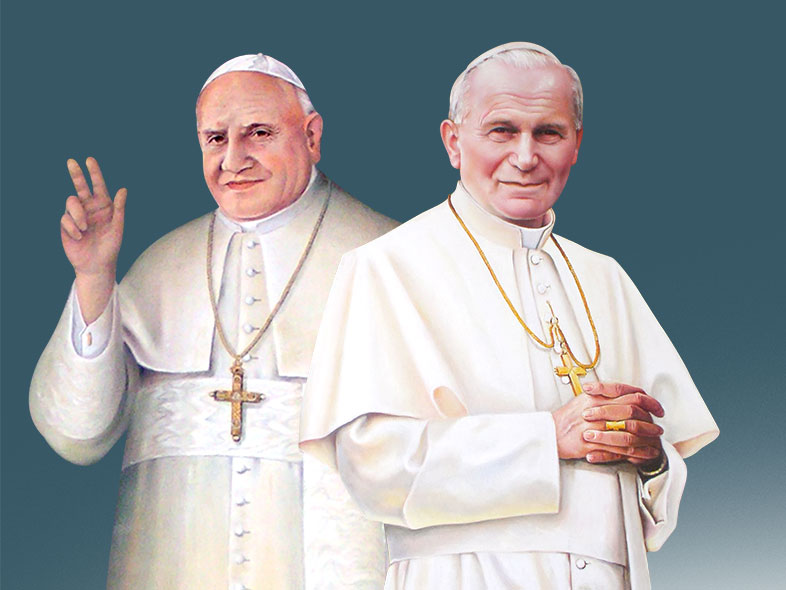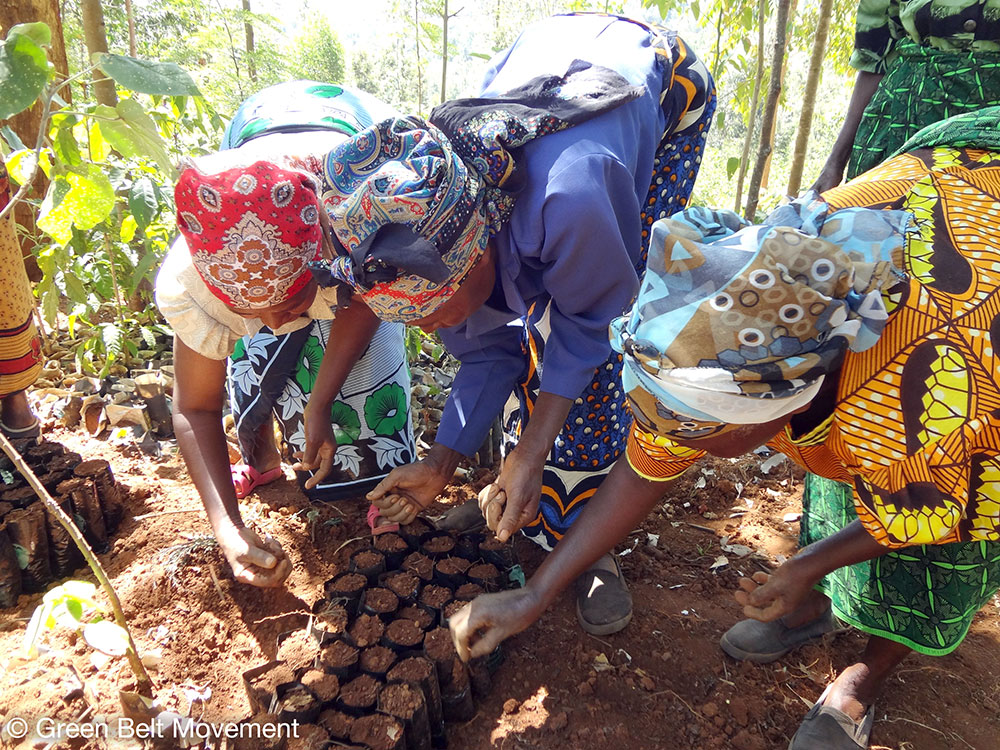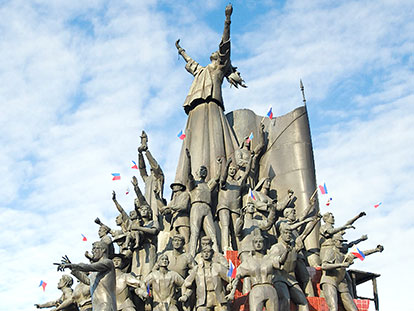The area of Northern Kenya, bordering with Somalia, is a semi-desertic wasteland crisscrossed by tracks that often see bands of marauders belonging to the nomadic tribes that inhabit those desolated places roaming about looking for robbery and looting. They are the notorious Shifta. Right in the middle of this God-forsaken part of Africa, there is the little town of Wajir that was, at that time, the residence of Annalena Tonelli, the heroic Italian lay volunteer who had specialized in the cure of tuberculosis.
In 1984, following political and inter-clan clashes, the army of Kenya started a repression campaign against the Degodia Somali clan in the Wajir area known as the Wagalla Massacre. The Degodia were suspected of being Shifta or bandits along the roadways. The Kenyan military rounded up 5,000 men and boys and brought them to the Wagalla airstrip and forced them to lie on their stomachs, naked, for five days. Possibly a thousand were shot, tortured or died of exposure.
With incredible courage and determination, Annalena brought a couple of lorries and her Toyota Serf to the Wagalla airstrip and attempted to collect the bodies and treat the wounded but was refused. Later, she followed the tracks of the military vehicles who were dumping the bodies outside the Wagalla airstrip. Some of the victims were not dead and she rescued them. She brought a journalist to photograph the genocide. She smuggled the photos out with Barbara Lefkow, the wife of an American diplomat, to put pressure on the international community.
The public denunciation of Annalena Tonelli helped to stop the killings but not before thousands died. The Wagalla Massacre is Kenya’s worst human rights violation in its history. Arrested and taken in front of a martial court, Annalena was told that the fact she had escaped two ambushes was not a guarantee that she would survive a third one. Due to Tonelli’s vehement protests over the Kenyan military’s use of violence, the Kenyan authorities refused to extend her work permit. Annalena Tonelli, subsequently, relocated to Somalia, continuing her life of dedication to the poor alone.
YOUNG, WHITE AND UNMARRIED
Annalena Tonelli was born at Forlì in Italy on April 2 1943, the only daughter of Guido, manager of the local farmers’ cooperative, and Teresina Bignardi, who had also four sons. She studied law at the ancient Bologna University and got her doctorate, “only to please her family” as she later declared, because her deepest tendency was for humanitarian work.
Annalena left Italy for Africa in 1969. She was 26. She had already spent six years of service to the poor in the slums of her city of origin, to the children of the local orphanage, especially the little girls with mental disability or victims of trauma, and to the Third World poor by means of the Committee against World Hunger that started in 1963 by her own initiative which will continue to operate in the future on behalf of Annalena’s initiatives.
She later declared: “I left Italy determined to shout the Gospel message with my life in Fr. Charles de Foucauld’s wake who had fired my existence. Thirty-three years after, I am shouting the Gospel with my very life and I am on fire with the desire to keep on shouting it until the end.” Hers was a vocation already ripe at a very young age: “I chose to be for others: the poor, the suffering, the abandoned, the non-loved since I was a little girl and such I have been and keep on being and will continue to be until the end of my life. What I wanted was only to follow Christ. Nothing else interests me but Christ and the poor in Him. I am not married because this is the choice I made: I wanted to belong completely to God.”
Annalena settled in Kenya, where she worked as a lay Christian missionary. She spent over a decade in the town of Wajir, caring for the destitute and the sick. She focused on tuberculosis and HIV/AIDS prevention and treatment; moreover, on campaigns for eradication of female genital mutilation, and special schools for hearing-impaired, blind and disabled children. The beginnings were not easy for her in Kenya; everything was against her. She was a young, white woman, unmarried – something absurd in that environment where celibacy did not exist and was not a value for anybody. It was even considered a non-value.
TREATING AND FEEDING THE SICK
In 1976, Annalena became responsible for a World Health Organization (WHO) pilot project for treating tuberculosis in nomadic people. This was because she had started to invite the nomadic tuberculosis patients to camp in front of the Rehabilitation Center for Disabled she was running with other female volunteers who had joined her to serve polio patients, blind, deaf-mute, and disabled people. This approach guaranteed patients’ compliance in taking the therapy over the needed six-month treatment, and it was adopted by WHO as DOTS (Directly Observed Therapy Short).
Annalena was able to feed daily more than three thousand people, cooking tons of maize flour, vegetables and beans in huge drums that had previously stored aircraft fuel. She herself was happy with only four hours of sleep per night. She had only two gowns and a shawl and was satisfied with very little food; only sometimes she indulged herself with some Italian coffee and a few crackers.
She also created a school for the deaf at Wajir. The approach was original and it was at Annalena’s school for the deaf that the Somali sign language was born for the first time. This success made the graduates of this school to go to other parts of Somali-speaking Africa to start other schools for the deaf.
From the nomads of the desert, Annalena said that she learned precariousness because of their awareness of the possibility of suddenly losing everything and, therefore, the necessity of starting afresh. She wrote: “They have taught me faith, unconditional abandonment, surrender to God, a surrender that has nothing fatalistic in it, but that is like a rock or like being rooted in God, our Rock of Refuge, a surrender which is trust and love. My nomadic friends of the desert have taught me how to do everything, start everything, accomplish everything in God’s name.”
As we have mentioned above, her staying in Kenya was marked by trouble and contradictions. She had to leave the country the first time in 1990; she went back the following year but, after a while, she had to run away from the danger of being executed. Eventually, her working permit was denied and she moved across the border to Somalia. Annalena first settled in the southern port town of Merca which, during the colonial period, was part of Italian Somaliland. She later moved to Borama, in the north-western Awdal region, a town of the former British Somaliland protectorate.
NOT A SINGLE CHRISTIAN
There, she founded a 250-bed hospital for tuberculosis patients and later on for AIDS patients. She also started a school for deaf and handicapped children. She wrote: “The population is totally Muslim. There is not a single Christian person with whom I might share a word about my faith. Twice a year, around Christmas and Easter, the Catholic bishop of Gibuti comes to celebrate Mass for me and with me and gives me communion. The people here are praying so that I may convert to Islam. They hint it to me discreetly, but they always add that God knows and that I will go to heaven even if I remain a Christian.”
She was happy among them because of the strength of her vocation. She wrote: “I run crazy, I lose my head over these shreds of wounded humanity: the more wounded they are, the more ill-treated they are, despised, voiceless, of no value in the eyes of the world, the more I love them. And this love is tenderness, understanding, tolerance, lack of fear, audacity. This is not a merit, it is a demand of my nature. But there is no doubt that in them I see Christ, the Lamb of God who suffers in His flesh the sins of the world, who shoulders them, who is in pain but with so much love….Nobody is outside God’s love.”
The respect and the love of the local community didn’t, however, spare her from martyrdom. Threatened for her witness and work, on October 5, 2003, two hired gunmen shot her in the head while she was coming back to the hospital and residence. Around her, as she lay on the ground, a circle of people quickly formed itself in order to protect her. They carried her to the hospital, but in vain: the wound was too grave and Annalena died. Once before she had escaped lynching by hiding in the maze of the village streets while an angry crowd was looking for her, accusing her of spreading the AIDS epidemics because she had started gathering the HIV positive patients in her hospital. This time, violent death caught up with her, as it had with her model and protector, Blessed Charles de Foucauld.
ONLY LOVING MATTERS
Commenting on her sudden and tragic death, Msgr. Sandro De Pretis, then vicar general of Gibuti, said: “With her work, Annalena was giving witness to Christian love. She did not do direct apostolate, she was not there to convert, but only in order to be an instrument of God’s love.” Annalena herself gave the following witness about her life in one of the very rare public statements, on the occasion of the International Day of Voluntary Service at the Vatican in Rome:
“I wanted to follow Jesus and I chose to be for the poor. Since then, I am living to the service of the poor. Because of Jesus, I made a radical choice, even if poor as a real destitute, I will never be able to be. I live out my service without a name, without the security of a religious order, without belonging to any organization, without a salary, not even the contributions for an old age pension. I shout the Gospel only with my life and I am on fire in order to keep on until the end.
This is my basic motivation, together with a passion for wounded and diminished human beings, those who are such, not trough their fault, beyond race or culture or faith… Our life makes sense only if we love. Nothing makes sense, only love. My life has known so many dangers. Many times I have risked death. For years, I have lived in the midst of war and I have experienced in the flesh of those who are mine, those I love, the badness of human beings, their perversion, cruelty and iniquity. I came out of it with the unshakable conviction that what matters is loving, only loving. Only thus life is worth living.”
When she was at Merka, in the former Italian Somaliland, the Italian government sent a warship in the vicinity and Annalena was invited aboard in order to receive a cross to the civic merit. They came for her with a smaller craft and helicopters. There was a great ceremony. They told Annalena that, in the aircraft carrier, the Italian ambassador was waiting for her. At first she didn’t want to accept, but eventually she understood that she had to comply. So she boarded the helicopter and went aboard and was solemnly awarded the cross to the civic merit in the presence of a rejoicing little crowd.
She said: “I never looked at that medal and I don’t even know its value. I sent it immediately to my mother. As you may know, I am against such type of acknowledgments: they are contrary to my life’s choice. I wanted to be a nobody. I have succeeded in this. I live like a nobody, with no power or protection. I want to continue like this: this is the meaning of my life. When you do something for the others, nobody should come to know about it.”
“Mother Teresa of Somalia” – this is how Annalena Tonelli was called because of her life spent day in day out on behalf of the lost, the least and the last: the sick, the poor…A life of selfless service cut short by a gunshot in Boroma, an isolated corner of Somalia. A devout Catholic, she found herself living and working in a pervasive Muslim society. She stated: “I try to live with extreme respect towards those whom the Lord has entrusted to me. I have assumed, as far as possible, their lifestyle. I live a very sober type of life as far as accommodation, food, means of transport and dress. I have spontaneously renounced my western habits. I have looked for dialogue with everybody.”
JESUS NEVER SPOKE OF RESULTS
Annalena Tonelli’s life was enlightened by a deep faith in God. But it was also marked by violence and difficulties, due to the fact of being a woman in a Muslim environment of extreme poverty and lack of financial and sanitary means. Notwithstanding all this, her message is one of hope. She is a very relevant witness of openness to dialogue, to meeting those who are different, destitute, dejected.
She stated: “The small ones, the voiceless, those who count nothing in the eyes of the world but much in God’s eyes, His favorite, need us and we must be with them and for them and it doesn’t matter if our action is like a drop in the ocean. Jesus Christ never spoke of results. He only told us to love one another, to wash one another’s feet, to forgive always… The poor are waiting for us. The ways of serving are infinite and left to our own imagination. Let us not wait to be instructed on the time of our service: let us invent, take initiative…And we shall find a new earth and a new heaven each day of our life.”
Annalena Tonelli demonstrated with her life that the primary way of ecumenism is that of living side by side with others, those who are different, listening to them, keeping the Gospel within the heart, and taking care of them in love.

